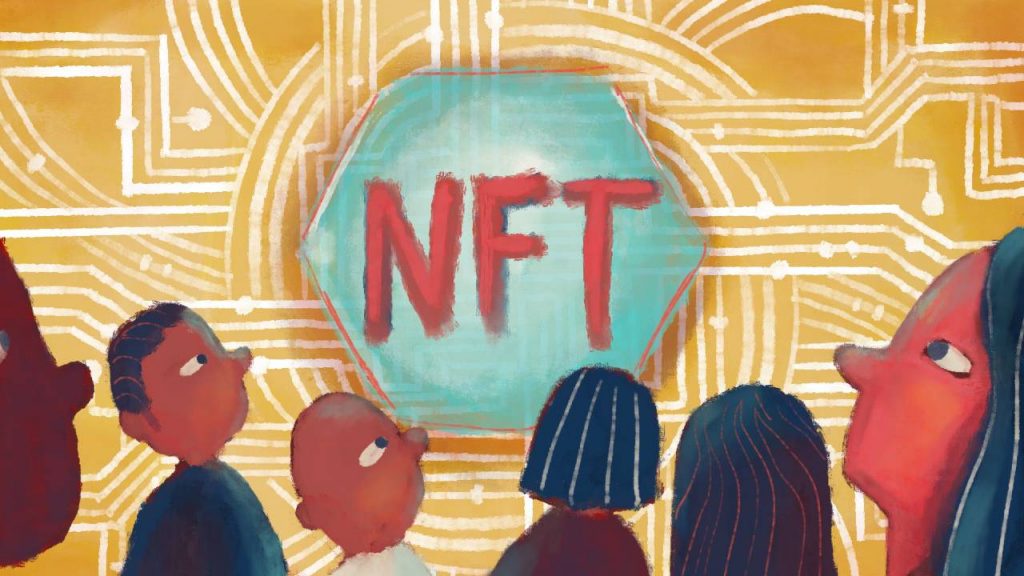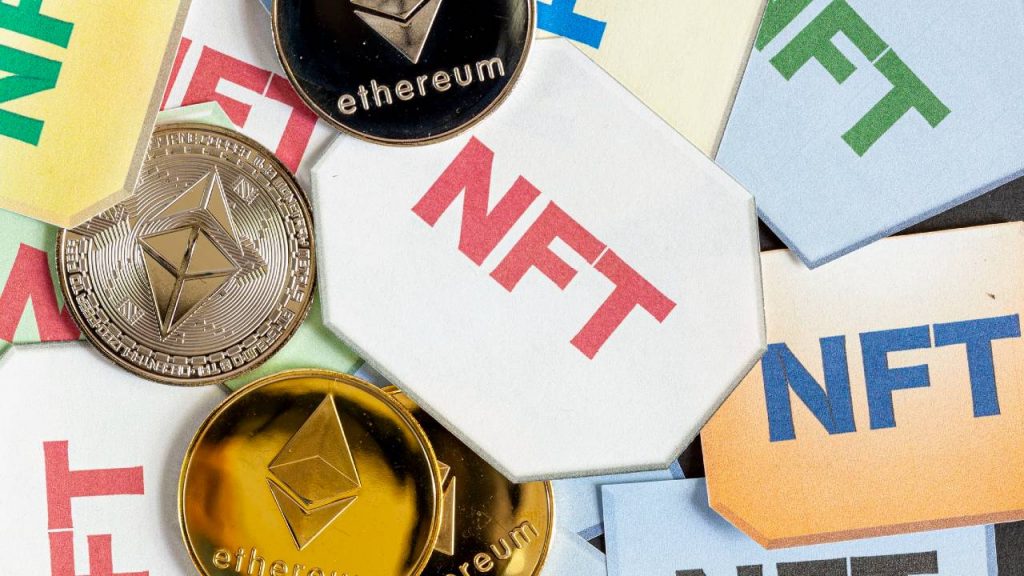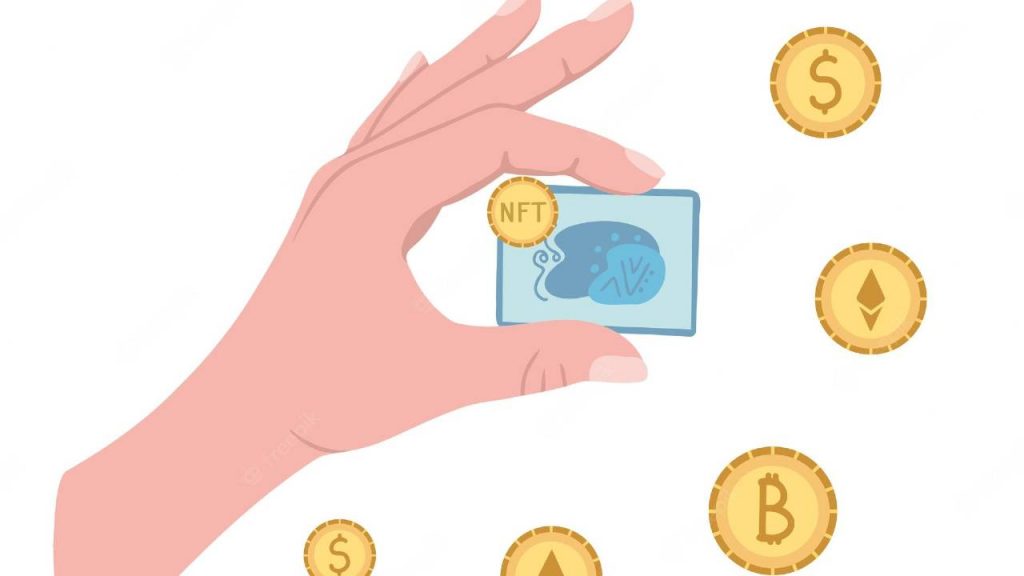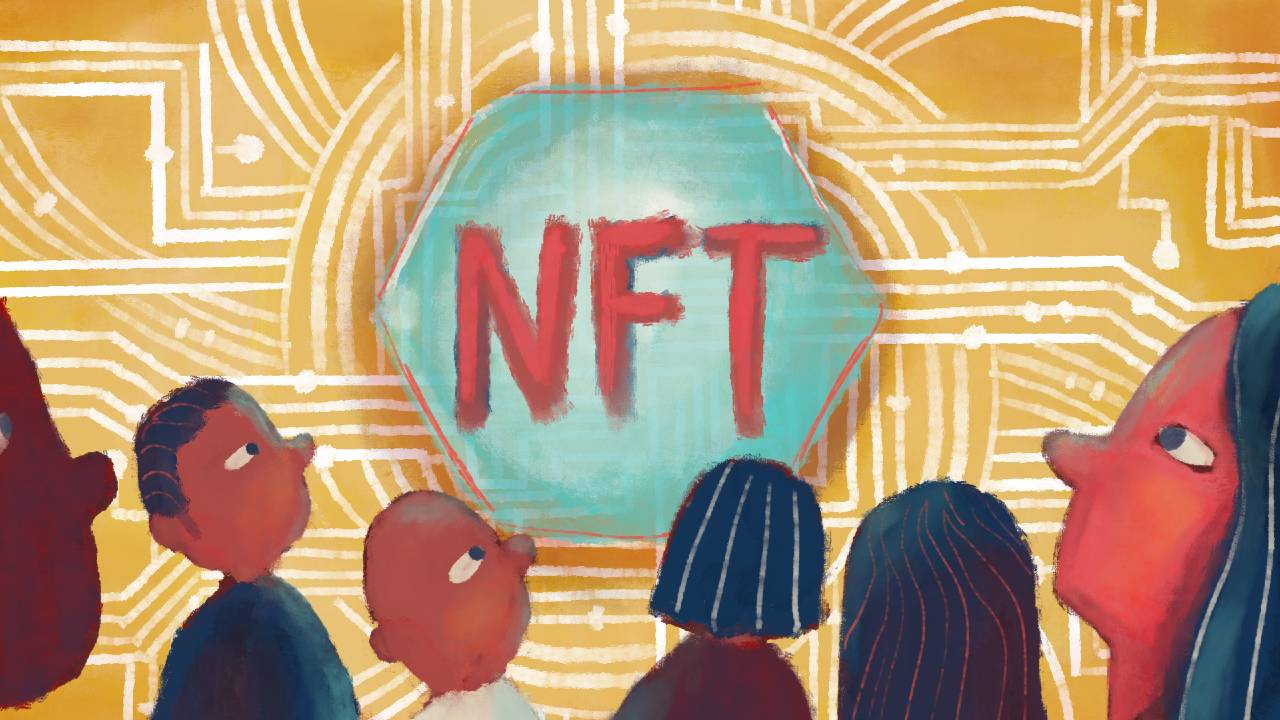Сrypto vs NFT: which is the best option to invest?
Cryptocurrencies have a wide range of potential use cases. They can be used as a store of value, a medium of exchange, or a unit of account. Cryptocurrencies can also be used to purchase goods and services, or to participate in decentralized applications (dapps).
NFTs, on the other hand, are typically used to represent digital assets. These can include digital art, collectibles, or in-game items. NFTs can also be used to represent real-world assets, such as property or tickets. Unlike cryptocurrencies, each NFT is unique and cannot be replaced by another token. This makes them well-suited for representing scarce or one-of-a-kind items.

Introduction
Cryptocurrencies and NFTs (non-fungible tokens) are both digital assets that use cryptography to secure their transactions. However, these two types of tokens differ in their use cases. Cryptocurrencies are typically used as a means of exchange, while NFTs are used to represent unique assets.
Crypto Vs Nfts, What’s The Difference?
Digital assets have been a hot topic as of late with the rise of cryptocurrencies. But there’s another type of digital asset that’s been getting attention too, and that’s NFTs. So, what exactly are NFTs and how do they differ from cryptocurrencies?
Cryptocurrencies
Cryptocurrencies are digital or virtual tokens that use cryptography to secure their transactions and to control the creation of new units. Cryptocurrencies are decentralized, meaning they are not subject to government or financial institution control.
Bitcoin, the first and most well-known cryptocurrency, was created in 2009 as a peer-to-peer electronic cash system. Cryptocurrencies are often traded on decentralized exchanges and can also be used to purchase goods and services.

NFTs
NFTs (non-fungible tokens) are a type of cryptocurrency that represents a unique asset. NFTs are often used to represent digital art, collectibles, or in-game items. Unlike cryptocurrencies, which can be interchangeable, each NFT is unique and cannot be replaced by another token.
NFTs are stored on a blockchain, just like cryptocurrencies. However, the data associated with an NFT is usually much larger than that of a cryptocurrency transaction. This is because NFTs often contain digital files, such as images or videos.
Because of their unique nature, NFTs can be used to represent ownership of digital assets. For example, an artist could create an NFT to represent a digital painting, and the owner of that NFT would be the only person who could sell or trade the painting.

Here are some key ways in which crypto and NFT differ:
- Use cases: Cryptocurrencies are primarily used as a form of currency or investment, while NFTs can be used to represent a wide range of assets, including digital art, collectibles, and in-game items
- Interchangeability: Cryptocurrencies are interchangeable, meaning one Bitcoin can be exchanged for another Bitcoin. NFTs, on the other hand, are unique and cannot be replaced by another token.
- Value: The value of a cryptocurrency is based on factors such as supply and demand, while the value of an NFT can vary depending on the asset it represents. For example, a digital art NFT might be worth more if it is created by a well-known artist.
- Ownership: Cryptocurrencies are typically owned by individuals or entities, while NFTs can also be owned by smart contracts.
- Transferability: Cryptocurrencies can be transferred easily and quickly, while the transfer of an NFT might be subject to certain restrictions, such as approval from the asset’s owner.
- Divisibility: Cryptocurrencies can be divided into smaller units, while NFTs usually cannot be divided.
- Perishability: Cryptocurrencies are digital assets that can theoretically last forever, while NFTs might be subject to expiration dates or other conditions that would cause them to be destroyed or removed from the blockchain.
- Fungibility: Cryptocurrencies are fungible, meaning one Bitcoin is the same as another Bitcoin. NFTs, on the other hand, are non-fungible, meaning each NFT is unique and cannot be replaced by another token.
- Storage: Cryptocurrencies are typically stored in digital wallets, while NFTs can be stored in digital wallets, smart contracts, or on the blockchain itself.
- Regulation: Cryptocurrencies are subject to varying degrees of regulation depending on the jurisdiction, while NFTs are not currently regulated.
- Taxation: Cryptocurrencies are subject to taxation in some jurisdictions, while NFTs are not currently taxed.
- Acceptability: Cryptocurrencies are accepted by a growing number of businesses and individuals, while NFTs are not currently widely accepted.
- Risk: Cryptocurrencies are subject to market risk, while NFTs are not currently subject to market risk.
- Volatility: Cryptocurrencies are notoriously volatile, while NFTs are not currently volatile.
- Price: The price of a cryptocurrency is based on supply and demand, while the price of an NFT can vary depending on the asset it represents.
- Liquidity: Cryptocurrencies are typically highly liquid, while NFTs are not currently liquid.
- Utility: Cryptocurrencies have a range of potential uses, while NFTs primarily function as a representation of digital assets.
- Popularity: Cryptocurrencies are some of the most popular assets in the world, while NFTs are not currently as popular

Why Are People Investing In Nfts?
NFTs have a few key advantages that make them appealing to investors.
- First, NFTs are unique and cannot be replaced by another token. This makes them more valuable than fungible tokens, which can be interchanged.
- Second, NFTs are often used to represent digital art, collectibles, or in-game items. This makes them more collectible and therefore more valuable.
- Finally, NFTs are decentralized, meaning they are not subject to government or financial institution control. This makes them more resistant to inflation and other economic factors.
How Are Nfts Different From Crypto?
Cryptocurrencies are digital or virtual tokens that use cryptography to secure their transactions and to control the creation of new units. Cryptocurrencies are decentralized, meaning they are not subject to government or financial institution control.
What Can Nfts Do?
Non-fungible tokens can be used to represent a wide range of digital assets, from in-game items and collectibles to digital art and real estate. NFTs can also be used to represent physical assets, such as tickets or loyalty points.

The Future Potential Of Nfts
With the rise of cryptocurrencies, a new type of asset has emerged: the non-fungible token, or NFT. NFTs are digital assets that are unique and cannot be replaced by another token. Unlike cryptocurrency, which can be used to purchase goods and services, NFTs are often used to represent digital art, collectibles, or in-game items.
While the use cases for NFTs are still being explored, there is a lot of potential for this new asset class. Here are some of the ways that NFTs could be used in the future:
- Digital art: NFTs could be used to represent digital art, such as paintings or photographs. The artist could sell their work as an NFT, and the buyer would own the digital asset.
- Collectibles: NFTs could also be used to represent collectibles, such as baseball cards or comic books. The collector could sell their collection as an NFT, and the buyer would own the digital asset.
- In-game items: NFTs could also be used to represent in-game items, such as weapons or armor. The player could sell their in-game item as an NFT, and the buyer would own the digital asset.
- Tokenized assets: NFTs could also be used to represent tokenized assets, such as real estate or stocks. The owner could sell their asset as an NFT, and the buyer would own the digital asset.
- Virtual worlds: NFTs could also be used to represent virtual worlds, such as those in video games or online communities. The creator could sell their world as an NFT, and the buyer would own the digital asset.
The use cases for NFTs are endless. As the technology develops, we will likely see even more innovative ways to use this new asset class.
How To Buy Nfts?
Cryptocurrencies and NFTs (non-fungible tokens) are both digital assets that use cryptography and blockchain technology. However, they differ in some key ways. Cryptocurrencies, such as Bitcoin, are meant to be used as a form of currency or investment. On the other hand, NFTs are unique digital assets that can represent anything from digital art to in-game items.
Popular Nft Marketplaces
Some popular NFT marketplaces include:
- OpenSea – OpenSea is the world’s largest marketplace for buying and selling digital assets. They have a wide range of assets, including art, games, and collectibles.
- Rarible – Rarible is a decentralized marketplace for buying and selling digital assets. They have a wide range of assets, including art, games, and collectibles.
- Foundation – Foundation is a marketplace for buying and selling digital art. They offer a wide range of art from a variety of artists.
- SuperRare – SuperRare is a marketplace for buying and selling digital art. They offer a wide range of art from a variety of artists.
- Decentraland – Decentraland is a virtual world where you can buy, sell, or trade land and assets. They have a wide range of assets, including art, games, and collectibles

Use cases for cryptocurrencies
- Store of value: Cryptocurrencies can be used as a store of value. Bitcoin, for example, is often referred to as “digital gold.”
- Payment method: Cryptocurrencies can be used as a payment method. Bitcoin, for example, can be used to purchase goods and services online.
- Medium of exchange: Cryptocurrencies can be used as a medium of exchange. Bitcoin, for example, is often used to buy other cryptocurrencies.
- Unit of account: Cryptocurrencies can be used as a unit of account. Bitcoin, for example, is often used to price goods and services in other currencies.
- Purchasing goods and services : Cryptocurrencies can be used to purchase goods and services. Bitcoin, for example, can be used to buy goods and services online.
- Decentralized applications: Cryptocurrencies can be used to power decentralized applications (dApps). Ethereum, for example, is often used to develop and run dApps.
Also you can read our article about crypto as profitable investment.
Use cases for NFTs
Digital assets
- Digital art. It is one of the most popular use cases for NFTs. Artists can create and sell digital artworks as NFTs, which allows them to retain copyright and control over their work. NFTs also enable artists to receive royalties each time their work is sold or resold.
- Collectibles. NFTs can also be used to represent collectibles, such as digital trading cards or virtual real estate. Collectors can buy, sell, or trade NFTs, which can be stored in a digital wallet.
- In-game items. NFTs can be used to represent in-game items, such as weapons, armor, or vehicles. Players can use NFTs to trade or sell items within a game. Game developers can also use NFTs to create new in-game economies.
Real-world assets
- Property. NFT can be used as property such as land or buildings. The owner can digitally transfer the asset to another person and track it on the blockchain.
- Tickets. NFTs can also be used to represent tickets for events, such as concerts or sports games. The ticket can be stored on a digital wallet and transferred to another person.
- Loyalty points. NFTs can be used to represent loyalty points, which can be redeemed for rewards or discounts. The points can be stored on a digital wallet and transferred to another person.

Conclusion
As we can see, both crypto and NFT have their own unique use cases. Crypto is mainly used as a means of payment, while NFTs are used to represent digital assets such as art, collectibles, or in-game items. Although both are based on blockchain technology, they differ in how they are created and managed. Crypto is decentralized, meaning it is not subject to government or financial institution control. On the other hand, NFTs are often created and managed by central authorities.
So, which one should you use? It really depends on your needs. If you want to use a cryptocurrency for payment, then crypto is a good choice. However, if you want to represent a unique digital asset, then an NFT would be a better option.
There you can read more about how NFT works.
Questions about NFT and crypto
Is NFT the same as cryptocurrency?
No, NFTs (non-fungible tokens) are a type of cryptocurrency that represents a unique asset. NFTs are often used to represent digital art, collectibles, or in-game items. Unlike cryptocurrencies, which can be interchangeable, each NFT is unique and cannot be replaced by another token.
Is Bitcoin a NFT?
No, Bitcoin is not an NFT. Bitcoin is a cryptocurrency that can be used as a means of payment. NFTs (non-fungible tokens) are a type of cryptocurrency that represents a unique asset. NFTs are often used to represent digital art, collectibles, or in-game items.
Why is NFT so popular?
NFTs have become popular because they offer a way to represent unique digital assets such as art, collectibles, or in-game items. NFTs are often created and managed by central authorities, which gives them more control over the asset.
Is NFT a good investment?
It really depends. Some people believe that NFTs are a good investment because they offer a way to represent unique digital assets. Others believe that NFTs are a risky investment because they are often created and managed by central authorities.
Why is NFT so expensive?
NFTs can be expensive because they offer a way to represent unique digital assets. NFTs are often created and managed by central authorities, which gives them more control over the asset.
What is the most expensive NFT ever sold?
The most expensive NFT ever sold is called “CryptoPunk #7523”, which was sold for $7.5 million in February 2021.
What are the risks of investing in NFTs?
NFTs can be a risky investment because they are often created and managed by central authorities. This means that there is a risk that the asset could be taken away or devalued by the authorities. There is also a risk that the NFT could be hacked or stolen.
Do you have to buy an NFT with Crypto?
No, you don’t have to buy an NFT with crypto. You can buy an NFT with any currency, including fiat currencies like USD or EUR.
Where can I sell NFT crypto?
There are a few places where you can sell NFTs, including online marketplaces like OpenSea and RareBits. You can also sell NFTs on decentralized exchanges like Ethereum’s DEX.
What is an NFT marketplace?
An NFT marketplace is an online platform where you can buy and sell NFTs. Some of the most popular NFT marketplaces include OpenSea and RareBits.
What is an NFT wallet?
An NFT wallet is a digital wallet that stores your NFTs. Some of the most popular NFT wallets include MetaMask and Trust Wallet.











